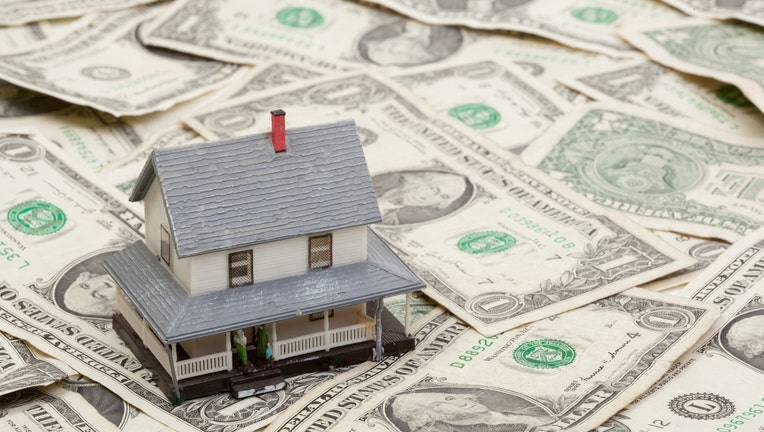5 reasons to get a cash-out refinance

As home equity continues to rise and mortgage rates continue to fall, there are several key situations when a cash-out mortgage refinance makes sense right now. But there are benefits and drawbacks to consider before you take action. (iStock)
Mortgage rates continue to fall as home equity continues to rise. Never before has there been a better time to take advantage of the current economic situation and complete a cash-out mortgage refinance. As of the quarter ending June 2020, mortgage refinance loan values totaled more than $580 billion. That number is up from $306 billion last quarter and more than double ($146 billion) from one year ago, according to U.S. Mortgage Originations.
A cash-out refinance turns your home equity — the difference between what your home is worth and the remaining balance on your mortgage — into cash. It does this by refinancing your current mortgage with a larger loan and giving you the difference, which you can then use for nearly anything.
Want to explore all of your loan options in one place from multiple lenders? Visit Credible today.
After you crunch the numbers using Credible's free online tools, then use an online mortgage refinance calculator to determine new monthly costs.
5 reasons to get a cash-out refinance
A cash-out refinance gives you access to cash for home improvements, paying your college tuition, purchasing a second home, funding your retirement account, consolidating your debt, and more. Your interest rate is likely to be significantly more affordable than what you may be paying on a personal loan or credit card, making it an affordable solution for many situations.
A cash-out mortgage refinance isn’t for everyone — but there are at least five reasons a cash-out refinance makes sense, such as:
- Lower interest charges
- Pay for an emergency expense
- Reduce your interest rate
- Cover the costs of education
- Consolidate high-interest debt
1. Lower interest charges
The average credit card interest rate has been about 14% to 15% since 2018, according to the Federal Reserve. So, if it costs $30,000 to repair the roof on your house and you charge the expense to your credit card, in one year, you’ll pay about $4,000 in interest alone. Instead, you can take the cash from a cash-out refinance to fund the new roof, potentially saving you thousands of dollars in interest over time.
To take the hassle out of rate shopping, consumers should visit Credible, where they can view loan options across multiple lenders in minutes, and with fewer forms to fill out.
IS A CASH-OUT REFINANCE A GOOD IDEA?
2. Pay for an emergency expense
Unfortunately, emergencies sometimes happen. Your car breaks down, you make a trip to the emergency room, your pet gets sick, or your son needs some extra cash to make last month’s rent. No matter what happens, a cash-out refinance can help pay for those unexpected situations.
3. Reduce your interest rate
It’s possible with a cash-out refinance to exchange the higher interest rate on your mortgage for a lower, more affordable rate, which will save you plenty of money in the long run.
Weekly average mortgage rates, as of Dec. 12, 2020:
- 30-Year Fixed-Rate Mortgage (FRM) — 2.71%
- 15-Year Fixed-Rate Mortgage (FRM) — 2.26%
- 5/1-Year Adjustable-Rate Mortgage (ARM) — 2.79%
If you haven't yet refinanced your mortgage, then you should compare rates and get started on the application process now. Don't leave money on the table! Fill out some online forms and see how much you could save today.
PERSONAL LOAN OR HOME EQUITY LOAN: WHICH IS BETTER?
4. Cover the costs of education
A college education is expensive. On average, it can cost $26,820 to attend an in-state four-year college, according to College Data. Scholarships and grants can help, but most financial aid has high interest attached—anywhere from 3.49% to 14.50%, depending on your credit.
5. Consolidate high-interest debt
When you use a cash-out refinance to consolidate your debt and pay off high-interest credit card debts, you can lower your monthly payments, simplify your repayments, and save on interest. That’s because interest rates on cash-out refinances are generally lower than most credit cards.
Although home equity is surging, interest rates are at all-time lows, and it’s a great time to refinance, you still may be unsure if a cash-out refinance is for you. Visit Credible to view loan options across multiple lenders with fewer forms to fill out.
Pros and cons of a cash-out refinance
Pros
- A cash-out refinance can raise your credit score by paying off your credit cards in full and reducing your credit utilization ratio, the amount of available credit you’re using.
- Often available with a cash-out refinance is the mortgage interest deduction if you use the money to substantially improve your home, buy or build a new home.
- Generally, a cash-out refinance can save you thousands of dollars in interest over time.
- Since a cash-out refinance is a loan, you don’t need to pay taxes on the cash you receive.
Cons
- Because you’re applying for a new mortgage, your credit score will take a temporary hit. To get prequalified today, without impacting your credit score, visit Credible.
- You’ll pay closing costs on your new loan, which can range from 2% to 5% of the mortgage amount.
- You’ll have to pay mortgage insurance if you borrow more than 80% of your home’s value.
- With a cash-out refinance, you are extending the length of time it will take to pay off your home.
Not everyone or every home qualifies for a cash-out refinance.
There are both benefits and drawbacks. If you’re considering a cash-out refinance, visit Credible first to get in touch with experienced loan officers and get your mortgage questions answered.

